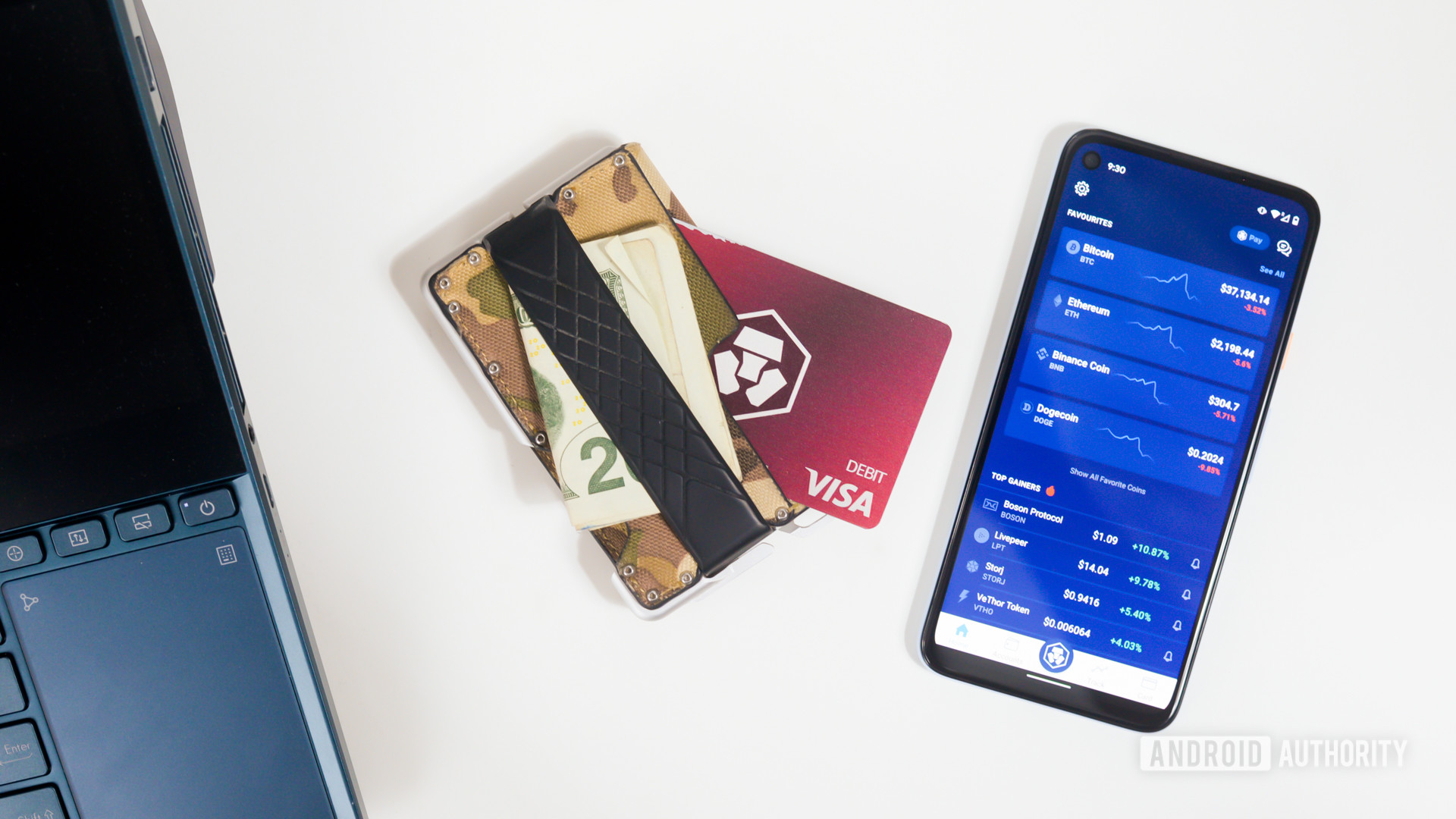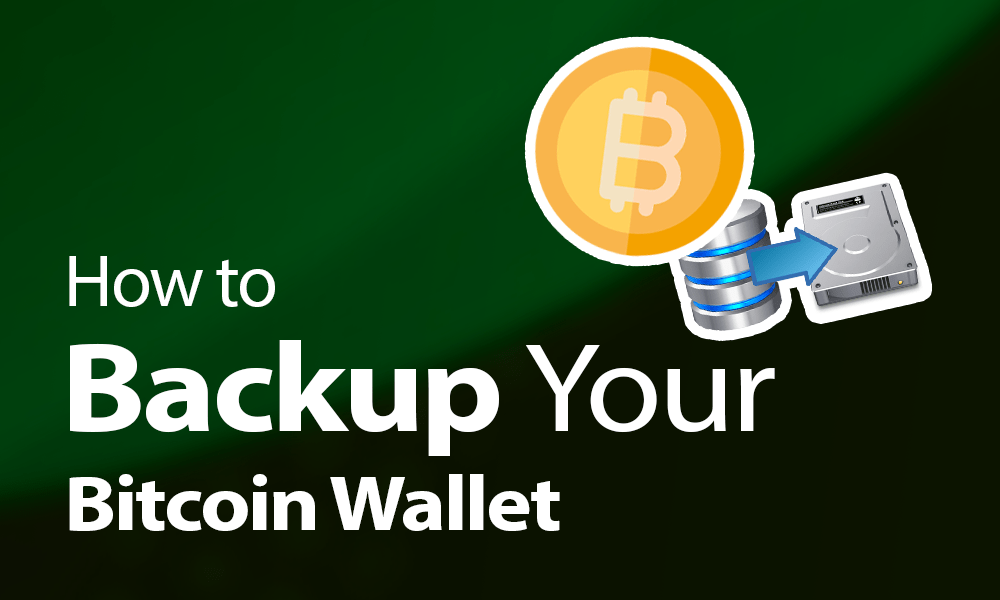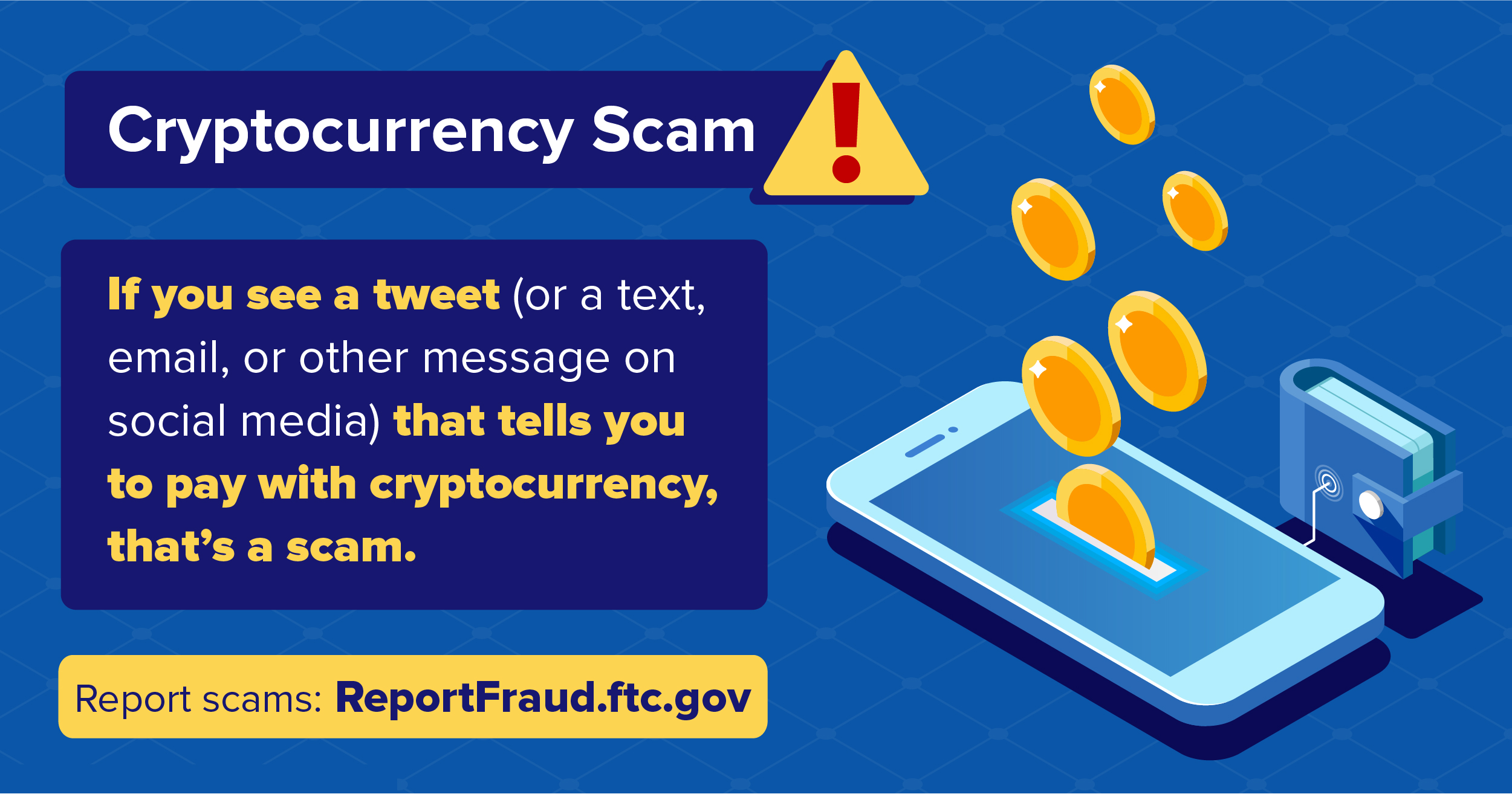If you’ve recently ventured into the world of cryptocurrencies, such as Bitcoin, you may have many questions about how to secure your digital assets. One crucial aspect of protecting your cryptocurrencies is having a reliable Bitcoin wallet.
A Bitcoin wallet is a software program or an application that allows you to securely store, send, and receive Bitcoin. There are various types of wallets available, each with its own characteristics and security features. Coinomi, for example, is a popular multicurrency wallet that provides easy access to multiple cryptocurrencies, making it convenient for those who hold different digital assets.
When it comes to sending Bitcoin, your wallet will generate unique addresses for each transaction. These addresses serve as a destination for your Bitcoin transactions and are essential for the recipient to receive the funds. It is crucial to double-check the recipient’s address and copy it correctly to avoid any mistakes that could lead to the loss of your crypto.
In addition to providing a secure place to store your cryptocurrencies, some wallets also offer extra security features. For example, a hardware wallet, such as Ledger or Trezor, provides an offline and physically secure environment for storing your digital assets. This added layer of security reduces the risk of hacks or theft.
Now that you know the basics of Bitcoin wallets, you can confidently manage and secure your cryptocurrencies. Whether you choose a popular wallet like Coinomi or opt for a hardware wallet, remember to always stay vigilant and keep your login credentials and private keys safe. With the right wallet, you can ensure the safety of your Bitcoin and other digital assets.
- Bitcoin Wallet: Everything You Need to Know
- Bitcoin Wallet: Everything You Need to Know
- What is a Bitcoin Wallet?
- Where Can You Get a Bitcoin Wallet?
- How Does a Bitcoin Wallet Work?
- How to Secure Your Bitcoin Wallet?
- What Happens If You Lose Your Bitcoin Wallet?
- Conclusion
- Secure Your Crypto
- Software Wallet
- Mobile Wallet
- What’s a Bitcoin Receiving Address
- Creating a Bitcoin Wallet Backup
- Which Bitcoin Wallet Should I Choose
- Hardware Wallet
- How Do I Create a Bitcoin Wallet?
- Cryptocurrency Wallet Explained for Beginners
- Safety First
- How Do I Receive or Send Bitcoin
- Receiving Bitcoin
- Sending Bitcoin
- What’s a Bitcoin Wallet
- Frequently Asked Questions:
- What is a Bitcoin wallet?
- How do I secure my Bitcoin wallet?
- What is a hardware wallet?
- Can I have multiple Bitcoin wallets?
- Can I lose my Bitcoin if I lose my wallet?
- How do I choose the right Bitcoin wallet?
- Can I use a Bitcoin wallet on my mobile phone?
- Video:
- How to Buy Cryptocurrency for Beginners (#1 Ultimate Guide 2022!) Step-by-Step (Updated!)
Bitcoin Wallet: Everything You Need to Know
A bitcoin wallet is a digital application or device that allows you to securely store, send, and receive bitcoins. It serves as a virtual bank account for your bitcoins, but with added security features and control.
When you receive bitcoins, they are sent to your wallet’s address, which is a unique identifier similar to a bank account number. You can have multiple addresses within a single wallet for organizational purposes or to separate different types of transactions.
To send bitcoins from your wallet, you need to enter the recipient’s address. This is similar to entering someone’s bank account number and authorizing a transfer. Once you confirm the transaction, the bitcoins will be deducted from your account and added to the recipient’s account.
If you’ve just started using bitcoin and don’t have a wallet yet, you’ll need to create one. There are various types of wallets available, including desktop, mobile, online, and hardware wallets. Each has its own advantages and security features, so you should choose one based on your needs and preferences.
For example, if you prefer accessing your wallet through a mobile device, you can use a mobile wallet like Coinomi. It allows you to manage your bitcoins conveniently on the go, making it an ideal choice for frequent transactions or using bitcoin for everyday purchases.
Once you’ve chosen a wallet, you’ll need to set it up by following the provided instructions. This usually involves creating a unique login and password, as well as generating a recovery phrase or seed. The recovery phrase is essential because it allows you to restore your wallet if you lose access to it or forget your login details.
Once your wallet is set up, you can start receiving bitcoins. To do this, simply provide your wallet’s address to the sender, who can then transfer bitcoins to that address. It’s important to copy the address carefully to avoid any errors, as bitcoin transactions are irreversible.
When it comes to security, it’s crucial to keep your wallet and login details safe. Never share your password or recovery phrase with anyone. Additionally, regularly update your wallet software and use two-factor authentication if available.
| Pros | Cons |
|---|---|
| Securely store and manage your bitcoins | Potential risk of losing access to your wallet if you forget the login details |
| Conveniently send and receive bitcoins | Risk of theft if your wallet is not properly secured |
| Ability to have multiple addresses for better organization | Dependence on the security of your wallet provider |
In conclusion, a bitcoin wallet is an essential tool for anyone interested in using bitcoins. It allows you to securely store, send, and receive bitcoins, as well as manage multiple addresses and transactions. By choosing a reliable wallet and implementing proper security measures, you can enjoy the benefits of bitcoin while keeping your funds safe.
Bitcoin Wallet: Everything You Need to Know
When it comes to managing your bitcoins, having a reliable and secure wallet is crucial. A bitcoin wallet is a digital wallet that allows you to store, send, and receive bitcoins. In this article, we will cover everything you need to know about bitcoin wallets.
What is a Bitcoin Wallet?
A bitcoin wallet is a software program or an application that allows users to create and manage their bitcoin addresses. These addresses are like virtual bank account numbers where you can store your bitcoins. Each bitcoin wallet comes with a unique address that you can use to send and receive bitcoins.
Where Can You Get a Bitcoin Wallet?
There are many different types of bitcoin wallets available, ranging from desktop wallets, mobile wallets, web wallets, hardware wallets, and paper wallets. Some popular examples include Coinbase, Coinomi, and Mycelium. You can download these wallets from their official websites or app stores.
How Does a Bitcoin Wallet Work?
When you create a bitcoin wallet, you will be provided with a unique bitcoin address. This address is like your account number, and you can share it with others to receive bitcoins. Similarly, when you want to send bitcoins to someone else, you will need their bitcoin address.
When you initiate a bitcoin transaction, the wallet will create a digital signature to prove that you are the owner of the bitcoins. This signature is then broadcasted to the bitcoin network, where miners verify the transaction and add it to the blockchain.
How to Secure Your Bitcoin Wallet?
Securing your bitcoin wallet is of utmost importance as it contains your valuable bitcoins. Here are a few tips to keep your wallet secure:
- Use strong and unique passwords.
- Enable two-factor authentication.
- Keep your wallet software up to date.
- Backup your wallet regularly.
- Avoid clicking on suspicious links or downloading unknown files.
- Consider using a hardware wallet for added security.
What Happens If You Lose Your Bitcoin Wallet?
If you lose your bitcoin wallet, you will lose access to your bitcoins. It is crucial to regularly backup your wallet and keep it in a secure location. By having a backup of your wallet, you can easily restore it on a new device and regain access to your bitcoins.
Conclusion
A bitcoin wallet is essential for safely storing, sending, and receiving bitcoins. Whether you choose a desktop wallet, mobile wallet, or hardware wallet, make sure to follow best practices for securing your wallet. By taking necessary precautions, you can ensure the safety of your bitcoins and have peace of mind.
Secure Your Crypto

When it comes to securing your cryptocurrency, choosing the right wallet is crucial. It’s important to find a wallet that offers a high level of security and fits your needs.
There are many different types of wallets available, each with its own pros and cons. Here are the most common types of wallets:
- Hardware Wallets: These are physical devices that store your private keys offline. They offer a high level of security and are well protected against hacking.
- Software Wallets: These wallets are installed on your computer or mobile device. They can be more vulnerable to hacking if your device is compromised.
- Online Wallets: These wallets are hosted online and can be accessed through a web browser. They provide convenience but are more susceptible to hacking.
When choosing a wallet, consider where you will be storing your cryptocurrency and how often you will need to access it. Hardware wallets are well-suited for long-term storage, while software and online wallets are more convenient for frequent transactions.
Once you have chosen a wallet, it’s important to set up strong security measures. This includes creating a complex password or passphrase, enabling two-factor authentication, and regularly updating your wallet software.
If you will be sending cryptocurrency to others, it’s important to double-check the recipient’s wallet address. Crypto transactions are irreversible, so if you send funds to the wrong address, you may lose them permanently.
When logging in to your wallet, be cautious of phishing attempts. Hackers may try to trick you into entering your login credentials on a fake website. Always double-check the website URL before entering any sensitive information.
It’s important to keep backups of your wallet. This can be done through mnemonic phrases or private key backups. If you ever lose access to your wallet, you can restore it using the backup.
If you’ve chosen Coinomi as your wallet, you can easily manage multiple cryptocurrencies in one place. Coinomi supports over 1,500 different coins and tokens, allowing you to diversify your portfolio.
In conclusion, securing your cryptocurrency is essential to protect your investment. Choose a wallet that suits your needs and offers a high level of security. Set up strong security measures, double-check recipient addresses, and regularly back up your wallet to ensure the safety of your crypto.
Software Wallet
A software wallet, also known as a hot wallet, is a digital wallet that allows you to store and manage your bitcoins on your computer or smartphone. With a software wallet, you have complete control over your private keys, which are needed to access your bitcoins.
Software wallets are convenient and easy to use. They provide you with a user-friendly interface that allows you to send and receive bitcoins with just a few clicks. You can also create multiple addresses within your software wallet, which can be used to receive bitcoins from different sources.
When you create a new software wallet, you will be provided with a unique bitcoin address. This address is like your bank account number and can be shared with others to receive bitcoins. You can generate as many addresses as you want, and each address will have its own private key.
One popular software wallet is Coinomi. It is available for both Android and iOS devices and supports a wide range of cryptocurrencies. Coinomi provides a secure and user-friendly interface for managing your bitcoins and other cryptocurrencies.
To send bitcoins from your software wallet, you would need to copy and paste the recipient’s bitcoin address into the wallet’s interface. You can also scan a QR code if the recipient provides one. Then, you would specify the amount of bitcoins you want to send and confirm the transaction.
When you log in to your software wallet, you will be able to see the balance of all your addresses. You can easily navigate through your addresses and track the history of your transactions.
It’s important to note that software wallets are connected to the internet and can be vulnerable to security threats. It’s recommended to use a trusted and reputable software wallet and take measures to protect your private keys.
| Advantages | Disadvantages |
|---|---|
|
|
Mobile Wallet

A mobile wallet is a type of digital wallet that allows you to manage your cryptocurrencies on your mobile device. It provides a convenient and accessible way to store, send, and receive your coins wherever you go.
There are many mobile wallets available, each with its own features and security measures. Here are a few popular ones:
- Coinomi: Coinomi is a popular mobile wallet that supports a wide range of cryptocurrencies. It offers a user-friendly interface and allows you to securely store and manage your coins on your mobile device.
Once you’ve installed a mobile wallet, you’ll need to create an account and set up a wallet by following the provided instructions. This usually involves creating a strong password and securing your account with additional security measures, such as two-factor authentication.
After creating your account, you can login to your mobile wallet with your chosen credentials. This will give you access to your wallet’s interface, where you can view your balance, send and receive cryptocurrencies, and manage your account settings.
To send cryptocurrencies from your mobile wallet, you will need to specify the recipient’s address. This is a unique string of characters that identifies the recipient’s wallet. You can either manually enter the address or use a QR code scanner to scan the recipient’s address.
If you frequently send cryptocurrencies to the same recipient, some mobile wallets allow you to save their addresses for easy access. This can be useful if you frequently make payments to a particular contact or merchant.
When sending cryptocurrencies, it is important to double-check the recipient’s address to ensure that you are sending the coins to the correct wallet. Transactions made on the blockchain are irreversible, so if you send your coins to the wrong address, you may not be able to recover them.
Some mobile wallets also allow you to copy the recipient’s address from your contacts or clipboard. This can save you time and minimize the risk of manual errors when entering the address.
In conclusion, a mobile wallet is a convenient way to manage your cryptocurrencies on the go. It provides you with the flexibility to access your coins wherever you are and makes sending and receiving cryptocurrencies as easy as a few taps on your mobile device.
What’s a Bitcoin Receiving Address
A Bitcoin receiving address is a unique identifier that allows you to receive bitcoins into your wallet. It acts like an email address or a bank account number, but specifically for bitcoins.
When you want to receive bitcoins from someone, they would need to know your receiving address. You can think of it as giving someone your bank account number so that they can send money to you.
Bitcoin receiving addresses are generated by your wallets. Most wallets will provide you with a list of addresses that you can use. Each address is unique and can only be used once.
Here’s how it works:
- You open your Bitcoin wallet.
- You navigate to the “Receive” section.
- You choose an address from the list provided.
- You would then share this address with the person who wants to send you bitcoins.
The person sending you bitcoins would then use your receiving address to initiate the transaction. They would enter your receiving address in their wallet’s “Send” section and specify the amount they want to send.
It’s important to note that you shouldn’t share your private keys or recovery phrases with anyone. Your receiving address is safe to share, but your private keys should be kept secure to protect your bitcoins.
To make it easier to share your receiving address, some wallets allow you to generate QR codes that contain the address. The person sending you bitcoins can simply scan the QR code instead of manually entering the address.
If you’re using a wallet like Coinomi, you can also generate multiple receiving addresses. This can provide an added layer of privacy and security as each transaction can use a different address.
Once someone sends bitcoins to your receiving address, you will see the transaction appear in your wallet’s transaction history. You can also monitor the transaction’s confirmations to ensure it’s been successfully processed.
In summary, a Bitcoin receiving address is a unique identifier that allows you to receive bitcoins into your wallet. It is generated by your wallet and can be safely shared with others. Just make sure to keep your private keys secure.
Creating a Bitcoin Wallet Backup
It is important to create a backup of your bitcoin wallet to ensure that your account and bitcoins are secure. A backup can be used to restore your wallet in case of loss, damage, or theft of your device.
There are different ways to create a bitcoin wallet backup, depending on the wallet you use. In this article, we will focus on creating a backup through the popular wallet called Coinomi.
- Login to your Coinomi wallet: Open the Coinomi app on your device and enter your login credentials to access your wallet.
- Find your wallet addresses: Once you are logged in, you will see a list of your wallet addresses. These addresses are used for receiving and sending bitcoins. Make sure you have a copy of all the addresses you’ve used for receiving bitcoins.
- Create a backup: In the Coinomi app, go to the settings menu and choose the “Backup” option. Follow the instructions provided to create a backup of your wallet.
- Store your backup securely: After creating the backup, you should store it in a secure location. This can be a hardware device, encrypted cloud storage, or a physical copy stored in a safe place.
- Test the backup: It is important to test the backup to ensure that it can be successfully restored. Follow the instructions provided by the wallet provider to restore your wallet using the backup file.
By creating a backup of your bitcoin wallet, you can ensure that your account and bitcoins are safe. In the event of any unfortunate circumstances, such as loss or theft of your device, you will still have access to your bitcoins through the backup you’ve created. Remember to regularly update your backups as you generate new wallet addresses.
Which Bitcoin Wallet Should I Choose
When it comes to choosing a Bitcoin wallet, there are several factors to consider. The right wallet for you will depend on your specific needs and preferences. Here are some key points to consider when making your decision:
- Type of Account: Determine whether you want a hardware wallet, software wallet, or an online wallet. Each type has its own advantages and disadvantages, so choose the one that meets your requirements.
- Security: Security should be a top priority when selecting a Bitcoin wallet. Look for wallets that offer robust security measures, such as two-factor authentication (2FA) and encryption.
- Usability: Consider how easy it is to use the wallet. A user-friendly interface and intuitive features will make managing your Bitcoin holdings a much smoother experience.
- Compatibility: Check if the wallet is compatible with the operating system and devices you plan to use. Some wallets are designed specifically for certain platforms, so make sure it works well with your setup.
- Control: Determine how much control you want over your Bitcoin. Some wallets give you full control over your private keys, while others may hold them on your behalf. Consider how much control you are comfortable with.
- Multi-Currency Support: If you hold other cryptocurrencies besides Bitcoin, you may want a wallet that supports multiple currencies. This will allow you to manage all your digital assets in one place.
- Community Reputation and Support: Look for wallets that have a strong community reputation and provide good customer support. This will ensure that you have assistance available if you encounter any issues or have questions.
After considering these factors, you will have a better understanding of what kind of Bitcoin wallet would be best for you. Remember to do your own research and read reviews to make an informed decision. It is also recommended to start with a small amount of Bitcoins when first using a new wallet to familiarize yourself with the process.
Some popular Bitcoin wallets that you may want to consider include Coinomi, Mycelium, Ledger Nano X, and Trezor Model T. These wallets offer a variety of features and cater to different user preferences. Make sure to choose a wallet that you feel comfortable with and trust to securely store your Bitcoins.
When using a Bitcoin wallet, it is important to have a good understanding of how to send and receive Bitcoins. Make sure to double-check the recipient’s Bitcoin address when sending funds and always copy and paste it to avoid any mistakes. This is crucial to ensure that your Bitcoins are sent to the intended recipient.
Overall, choosing a Bitcoin wallet is a personal decision that depends on your own preferences and needs. Take the time to research different wallets and test them out before committing to one. With the right wallet, you can securely store and manage your Bitcoins with peace of mind.
Hardware Wallet

A hardware wallet is a physical device that is specially designed to securely store your cryptocurrency. It provides an extra layer of security compared to software wallets, as the private keys are stored offline on the device and cannot be accessed by hackers or malware when connected to a computer or the internet.
When you set up a hardware wallet, you will be prompted to create an account. This usually involves setting a strong and unique password, as well as writing down a recovery seed phrase. This seed phrase is a backup that can be used to recover your wallet if it is lost or damaged.
With a hardware wallet, you have control over your private keys, which are necessary to access and manage your cryptocurrency. This means that even if the device is lost or stolen, your funds are still secure, as the private keys cannot be extracted from the device without providing the correct password and recovery seed.
Sending cryptocurrency with a hardware wallet is straightforward. You will need to connect the device to a computer or mobile device and open a compatible wallet application, such as Ledger Live or Trezor Wallet. From there, you can select the cryptocurrency and the recipient’s address, and enter the amount you want to send.
The hardware wallet will then display the transaction details for you to verify, such as the recipient address and the amount being sent. Once you have confirmed the details, you will need to physically press a button on the device to authorize the transaction. This ensures that even if your computer or mobile device is compromised, the transaction cannot be tampered with.
It’s important to note that a hardware wallet can be used with multiple cryptocurrency addresses. For example, if you have Bitcoin, Ethereum, and Litecoin, you can manage all of these coins through the same device and wallet application. Each cryptocurrency will have its own set of addresses associated with it, which you can easily access and manage through the wallet application.
If you already have a software wallet, such as Coinomi, you can transfer your bitcoins to a hardware wallet. To do this, you would need to generate an address from your hardware wallet and copy it. Then, in your software wallet, you can initiate a transfer and paste the hardware wallet address as the recipient.
Overall, a hardware wallet provides the highest level of security for your cryptocurrency. It keeps your private keys offline and requires physical confirmation for transactions. If you are serious about securing your crypto assets, investing in a hardware wallet is highly recommended.
How Do I Create a Bitcoin Wallet?
Creating a Bitcoin wallet is a straightforward process that allows you to store, send, and receive bitcoins. Here is a step-by-step guide on how to create a Bitcoin wallet:
- Choose a Wallet: There are different types of wallets available, such as hardware wallets, mobile wallets, desktop wallets, and web wallets. Each type has its own advantages and features. Research and choose a wallet that suits your needs.
- Download and Install: Once you’ve chosen a wallet, download and install it on your device. Visit the official website of the wallet provider to get the correct installation files.
- Create a New Wallet: After installing the wallet, launch the application and choose the option to create a new wallet. You may be asked to set a strong password as an extra layer of security.
- Backup Your Wallet: It is crucial to create a backup of your wallet. Most wallets will provide you with a unique recovery phrase or seed. Write it down and keep it in a safe place. This will help you restore your wallet if your device gets lost or damaged.
- Receive Bitcoins: To receive bitcoins, you will need a Bitcoin address. Your wallet will generate a unique address for each transaction. Share this address with the sender or copy it to the clipboard to receive bitcoins.
- Sending Bitcoins: When you want to send bitcoins to a recipient, you will need their Bitcoin address. Copy the recipient’s address and enter it in the send section of your wallet. Specify the amount you want to send and review the transaction details before confirming.
- Login and Access Your Wallet: To access your wallet and manage your bitcoins, you will need to login with your credentials. Depending on the wallet you choose, you may need to enter a password or use two-factor authentication.
- Security Measures: As bitcoins are digital assets, it’s essential to secure your wallet. Enable additional security features such as two-factor authentication and choose a strong password. Keep your wallet software and devices updated to protect against potential vulnerabilities.
By following these steps, you will have a Bitcoin wallet up and running, allowing you to send, receive, and store bitcoins securely. Remember to keep your wallet and recovery phrase safe and secure at all times.
Cryptocurrency Wallet Explained for Beginners

A cryptocurrency wallet is a secure digital wallet that allows users to store, manage, and send their cryptocurrencies such as Bitcoin, Ethereum, and Litecoin. Think of it as a virtual bank account for your digital currencies.
When you own cryptocurrencies, you don’t actually possess physical coins or bills. Instead, you have a digital record of your ownership in the form of transactions on the blockchain, a decentralized, public ledger. The wallet is the tool that allows you to interact with this blockchain and manage your digital assets.
There are different types of cryptocurrency wallets available, each offering different levels of security and convenience. Here are some of the most common types:
- Software Wallets: These are wallets that you install on your computer or mobile device. They are convenient to use and provide a good level of security. Examples include Bitcoin Core, Electrum, and Coinomi.
- Web Wallets: These wallets are hosted online and can be accessed through a web browser. They are easy to use, but you have to trust the wallet provider with the security of your cryptocurrencies. Examples include Coinbase and Blockchain.info.
- Hardware Wallets: These are physical devices specifically designed for storing cryptocurrencies. They offer the highest level of security but can be more complex to use. Examples include Ledger Nano S and Trezor.
- Paper Wallets: These are physical printouts or handwritten copies of your private and public keys. They are considered highly secure as they are not connected to the internet, but they can be easily lost or damaged.
Once you have chosen a wallet that suits your needs, you will need to set it up and create an account. This usually involves creating a strong password and, in some cases, setting up two-factor authentication for added security.
After you have set up your wallet, you will be provided with one or more addresses. These addresses are similar to bank account numbers and are used to receive cryptocurrencies. You can share your addresses with others when you want them to send you cryptocurrencies.
To send cryptocurrencies, you would need the recipient’s address. You can usually copy and paste the address from their wallet or enter it manually. Make sure to double-check the address before sending any funds, as transactions on the blockchain are irreversible.
When you want to send bitcoins or other cryptocurrencies from your wallet, you will need to provide the recipient’s address and the amount you want to send. The wallet will then create a transaction and broadcast it to the network. Once the transaction is confirmed by the network, the recipient will receive the coins.
It’s important to note that wallets don’t actually store your cryptocurrencies. Instead, they store your private keys, which are used to access and manage your cryptocurrencies on the blockchain. Losing your private keys can result in permanent loss of access to your funds.
In conclusion, cryptocurrency wallets are essential tools for securely managing your digital assets. They come in different types with varying levels of security and convenience. Choose a wallet that suits your needs and always keep your private keys safe.
Safety First

When it comes to managing your Bitcoin wallet, safety should always be your top priority. Here are some essential tips to keep in mind:
- Choose a secure login: Select a strong and unique password for your wallet account. Avoid using common phrases or easily guessable information.
- Enable two-factor authentication: Two-factor authentication adds an extra layer of security to your wallet. It requires a second verification step, such as a unique code sent to your phone, to access your account.
- Protect your private keys: Your private keys are the most important aspect of your Bitcoin wallet. Keep them offline and store them in a secure location. Only reveal them when necessary.
- Double-check recipient addresses: Before sending bitcoins, always verify the recipient’s address. Double-check each character to avoid any potential typos that may result in lost funds.
- Use reputable wallets: Stick to well-known and trusted Bitcoin wallet providers. Popular options include Coinomi, Electrum, and Ledger Wallet.
- Update your wallet software regularly: Stay updated with the latest version of your wallet software to benefit from any security enhancements or bug fixes.
- Be cautious with public Wi-Fi: Avoid accessing your wallet or performing Bitcoin transactions when connected to public Wi-Fi networks. These networks may not be secure, and your sensitive data could be intercepted.
- Backup your wallet regularly: Regularly backup your Bitcoin wallet to protect against data loss. Store backups on multiple offline devices or locations.
- Be aware of phishing attempts: Be cautious of phishing attempts where malicious actors may try to trick you into revealing your wallet credentials. Always double-check URLs and verify the authenticity of any requests for sensitive information.
Following these safety practices will help ensure the security of your Bitcoin wallet, protecting your funds from potential risks and threats.
How Do I Receive or Send Bitcoin

Once you have set up your Bitcoin wallet, you can easily send and receive Bitcoins. Here’s how:
Receiving Bitcoin
- Login to your Bitcoin wallet.
- Find or generate a receiving Bitcoin address in your wallet. The address is a long string of characters starting with a “1” or “3”.
- Share the receiving address with the sender. This is usually done by copying the address and providing it to the sender through a secure channel.
- Once the sender sends Bitcoins to your address, the transaction will be added to the blockchain, and the Bitcoins will be credited to your wallet.
Sending Bitcoin
- Login to your Bitcoin wallet.
- Find the option to send Bitcoin in your wallet. This is usually clearly labelled.
- Enter the recipient’s Bitcoin address. Make sure to double-check the address to avoid sending Bitcoins to the wrong person.
- Specify the amount of Bitcoins you want to send.
- Review the transaction details, such as the fee and the total amount to be sent.
- If everything looks good, confirm the transaction.
- Once confirmed, the transaction will be added to the blockchain and the recipient will receive the Bitcoins.
It’s important to note that transactions are irreversible in the Bitcoin network. This means that if you send Bitcoins to the wrong address or if you lose access to your wallet, you may not be able to recover your funds. Therefore, it’s crucial to double-check all the details before sending any Bitcoins.
It’s also worth mentioning that there are different types of wallets available, such as mobile wallets like Coinomi or hardware wallets. Each wallet may have a slightly different process for sending and receiving Bitcoin, so it’s recommended to refer to the wallet’s documentation or support for specific instructions.
What’s a Bitcoin Wallet
A Bitcoin wallet is a digital wallet where you can store your bitcoins securely. It acts as a virtual copy of your physical wallet, but instead of holding traditional currency, it holds bitcoins.
To access your Bitcoin wallet, you will need to log in with a private key or a seed phrase, which is a series of words that serves as a backup of your wallet. This way, even if you lose your wallet or device, you can still recover your funds using the seed phrase.
When you want to send bitcoins to someone, you will need their Bitcoin address. The recipient’s Bitcoin address is similar to a bank account number, and it is unique to each person. This address is where the bitcoins will be sent.
There are different types of Bitcoin wallets available, such as software wallets, hardware wallets, and online wallets. Some popular software wallets include Coinomi, Electrum, and Exodus. Hardware wallets, such as Trezor and Ledger, are physical devices that provide enhanced security for your bitcoins.
Bitcoin addresses are alphanumeric strings that start with a “1” or “3”. They are usually long and can be difficult to remember, which is why most people copy and paste them when sending bitcoins.
When sending bitcoins through a wallet, you will specify the amount you want to send as well as the recipient’s Bitcoin address. Once the transaction is initiated, the bitcoins will be deducted from your wallet and added to the recipient’s wallet.
It is essential to double-check the recipient’s Bitcoin address before sending any bitcoins, as transactions on the blockchain are irreversible. If you send bitcoins to the wrong address, you may not be able to recover them.
In summary, a Bitcoin wallet is where you store your bitcoins securely. It is accessed through a private key or a seed phrase. Bitcoin addresses are used when sending bitcoins, and there are different types of wallets available, such as software wallets and hardware wallets.
Frequently Asked Questions:
What is a Bitcoin wallet?
A Bitcoin wallet is a digital wallet that allows users to store, send, and receive Bitcoin and other cryptocurrencies. It consists of a public address, used to receive funds, and a private key, which is used to access the funds and authorize transactions.
How do I secure my Bitcoin wallet?
There are several ways to secure your Bitcoin wallet. You can use strong, unique passwords, enable two-factor authentication, keep your software up to date, and store your private key offline in a hardware wallet or on a paper wallet.
What is a hardware wallet?
A hardware wallet is a physical device that stores the private keys to your cryptocurrency wallets offline. It is considered to be one of the most secure ways to store your Bitcoin and other cryptocurrencies, as it is not connected to the internet and is resistant to hacking attacks.
Can I have multiple Bitcoin wallets?
Yes, you can have multiple Bitcoin wallets. Having multiple wallets can provide additional security and privacy, as well as help you better organize your funds if you have different purposes for your Bitcoin.
Can I lose my Bitcoin if I lose my wallet?
No, you will not lose your Bitcoin if you lose your wallet. Your wallet does not actually store your Bitcoin; it stores the private keys that allow you to access and authorize transactions with your Bitcoin. As long as you have backed up your private keys, you can restore your wallet and access your Bitcoin.
How do I choose the right Bitcoin wallet?
Choosing the right Bitcoin wallet depends on your needs and preferences. Factors to consider include security, convenience, accessibility, and the type of device you will be using. Some popular options include hardware wallets like Trezor and Ledger, as well as software wallets like Electrum and Exodus.
Can I use a Bitcoin wallet on my mobile phone?
Yes, you can use a Bitcoin wallet on your mobile phone. There are many mobile wallet apps available for both iOS and Android devices that allow you to send, receive, and manage your Bitcoin and other cryptocurrencies on the go.
Video:
How to Buy Cryptocurrency for Beginners (#1 Ultimate Guide 2022!) Step-by-Step (Updated!)








